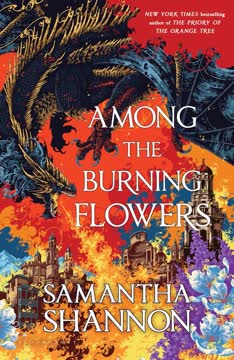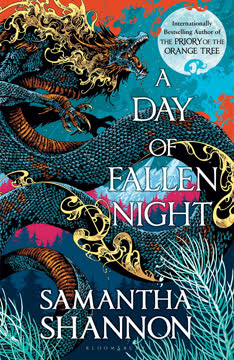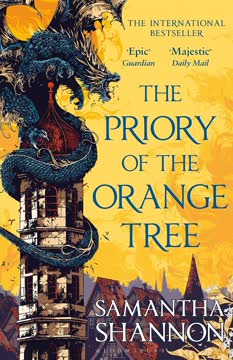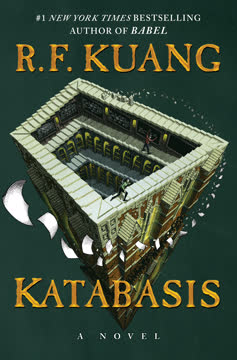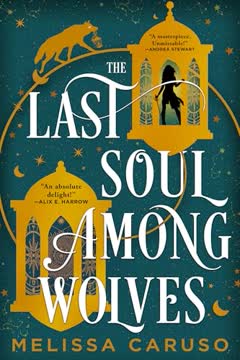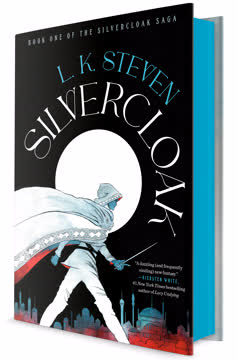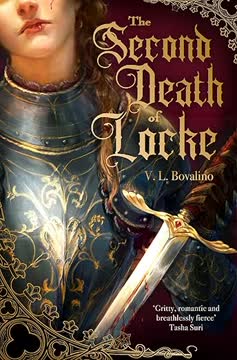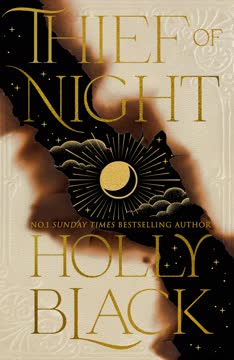Plot Summary
Prisoner in the Black Tower
Marosa Vetalda, the Donmata of Yscalin, lives as a virtual prisoner in the obsidian Palace of Salvation, her every move controlled by her father, King Sigoso. The city of Cárscaro, once a mine and now a fortress, is both her home and her cage. Marosa's days are regimented, filled with lessons, prayers, and longing for freedom. Her only solace comes from her loyal companions—Priessa, Ermendo, and a few trusted ladies. Haunted by her mother's mysterious death and her father's coldness, Marosa dreams of escape and a future with her betrothed, Aubrecht Lievelyn. Yet, the city trembles with unnatural earthquakes, and a river of lava divides it, foreshadowing the chaos to come. Marosa's isolation is both physical and emotional, her hope flickering in the oppressive darkness.
Burning Spring, Shattered Hope
As spring arrives, Cárscaro is gripped by relentless heat and tremors, the land itself rebelling. Marosa's memories of happier days with her mother, Queen Sahar, are tainted by loss—the lavender fields now scorched, the Gloriza Falls destroyed by lava. Her father's refusal to move the capital or allow her freedom deepens her sense of suffocation. Letters and Secret Messages from Queen Sabran of Inys and the Dowager Prince Fynch highlight the political tension and Marosa's isolation. The city's beauty is marred by the ever-present threat of fire and the king's paranoia. Marosa clings to her plan: marriage to Aubrecht as her key to freedom and a more tolerant future for Yscalin. Yet, the city's unrest and her father's control make hope seem distant, as the world outside grows more dangerous.
The Caged Heir's Dream
Marosa's daily life is a cycle of ritual and restraint, her education self-driven after her mother's death. She yearns for political agency, denied by her father's suspicion. Her betrothal to Aubrecht is both a lifeline and a source of anxiety—she cherishes their brief, genuine connection, but fears the masks people wear. Marosa's secret rebellion is internal: she studies, plans, and dreams of a Yscalin where tolerance and grace prevail. Her mother's forbidden mirror and teachings of Dwyn inspire her to envision a world beyond the Saint's rigid faith. The memory of her mother's love and the pain of her absence fuel Marosa's resolve to endure, to wait for her chance to break free, even if it takes years.
Outlaw Among Sleepers
Estina Melaugo, a destitute culler, survives on the fringes of Yscalin, hunting Draconic beasts for meager payment. Scarred by poverty and orphanhood, she bargains with villagers for food, risking her life to slay a lindworm. The world is changing—ancient monsters, once dormant, are waking, and Melaugo's dangerous trade is both necessity and curse. Her past is marked by loss: her parents jailed for defying the king's unjust taxes, her childhood spent as a street urchin. Now, every kill is a battle against starvation and despair. Melaugo's resilience is fierce, but her isolation is profound. The villagers' grudging acceptance offers a fragile sense of belonging, yet she remains haunted by the knowledge that survival is never guaranteed.
Monsters Wake, Kingdoms Tremble
The world's old terrors stir as the Draconic Army—wyverns, wyrms, and their monstrous offspring—begin to awaken. Melaugo's culling is no longer a solitary struggle; it is a symptom of a greater crisis. Rumors of wyverns in Lasia and Inys, and the king's scapegoating of cullers, signal a return to the horrors of the Grief of Ages. The political order is fragile: King Sigoso's paranoia grows, and alliances fray. Melaugo's reunion with her mentor Harlowe and lover Liyat offers a glimmer of hope, but also hard choices. The threat is not just physical but existential—faith, loyalty, and identity are all under siege as the world teeters on the brink of a new age of fire and fear.
Smugglers, Exiles, and Choices
Melaugo's journey is shaped by her relationships with Harlowe and Liyat, both outlaws in their own right. Harlowe offers her a place on his ship, a chance at a new life beyond Yscalin's borders, while Liyat's love is both anchor and ache. Melaugo's pride and longing for home war with the reality of persecution and danger. The trio's conversations reveal the deep wounds of class, faith, and loss that define Yscalin's underclass. Melaugo's eventual decision to leave with Liyat, seeking safety in Ortégardes and possibly Lasia, is an act of survival and love. Yet, the shadow of the Draconic threat and the king's betrayal looms, making every choice fraught with risk and regret.
The Fall of Cárscaro
Cárscaro's defenses crumble as Fýredel, the High Western wyrm, awakens beneath Mount Fruma. Wyverns pour from the mountain, setting the Great Yscali Plain ablaze and destroying the city's artillery. The king's court descends into panic and blame, unable to comprehend or resist the scale of the threat. King Sigoso, desperate to save himself, sends a decoy to face Fýredel, but the wyrm demands the true king. In a moment of grim resolve, Sigoso submits to Fýredel and is transformed—his eyes turning to ash, his will subsumed. The city is lost, its people trapped and terrorized, as the Draconic Army claims Yscalin for the Nameless One. Marosa's hope for escape is extinguished as her father becomes the puppet of a monster.
Betrayal and the Iron King
King Sigoso's surrender to Fýredel marks the birth of the Draconic Kingdom of Yscalin. The king, now the Flesh King, enforces the wyrm's will, spreading the Draconic plague and crushing resistance. Marosa is forced to witness the transformation of her homeland—faith, law, and kinship twisted to serve the Iron King. The Privy Council capitulates, and cults devoted to Fýredel rise. Marosa's secret plans are thwarted at every turn; her friends and allies are executed or driven to despair. The revelation of her father's crimes—his murder of Queen Rosarian and her own mother—shatters Marosa's last illusions. She is left with only her resolve and the faint hope of smuggling a weapon to the Ersyr, even as the city becomes a tomb.
The Draconic Plague Spreads
Under Draconic rule, Cárscaro becomes a city of fear and death. The plague spreads, monsters roam the streets, and the cult of the Iron King flourishes. Marosa's attempts to resist are met with brutal reprisals—her friends Ermendo and Yscabel are killed, and the city's faithful are hunted. The people's spirit is broken, and even Marosa's hope dims as every escape attempt fails. The box entrusted to her by a dying Ersyri agent, said to contain a weapon against the wyrms, becomes her last secret. Yet, the path to freedom is blocked by monsters and betrayal. Marosa's isolation is complete, her only companion the memory of those she has lost and the weight of her duty to a dying kingdom.
Love, Loss, and Survival
Melaugo and Liyat's escape from Ortégardes is a desperate race against the wyverns' fire. The city's gates are sealed, its people slaughtered, and only cunning and luck allow them to reach the coast. The Rose Eternal, Harlowe's ship, becomes their sanctuary—a floating refuge from the apocalypse. Onboard, Melaugo confronts her fears and her love for Liyat, finding in their shared vulnerability a reason to hope. The world they knew is gone, but together they chart a new course, vowing to face whatever comes. Their story is one of survival, resilience, and the stubborn refusal to let love be extinguished, even as Yscalin burns behind them.
The Puppet King's Confession
Marosa uncovers the full extent of her father's betrayal: his murder of Queen Rosarian, his manipulation of faith and power, and his willingness to sacrifice anyone for his own ends. The confession, extracted with the help of Dowager Prince Fynch, is both a personal and political reckoning. Marosa's sense of self is shattered, but she finds a grim clarity in the truth. She entrusts Fynch with a mission to deliver a weapon to the Ersyr, hoping to spark resistance. Yet, even this plan is doomed—Fynch is killed by Draconic beasts, and the path to freedom is closed. Marosa's isolation is now absolute, her only solace the knowledge that she has not surrendered her soul.
The Failed Escape
Attempts to escape Cárscaro end in tragedy. Fynch, Ruzio, and Bartian all perish in the mountains, their bodies left as warnings. The Draconic plague and monsters make flight impossible, and Marosa's last allies are gone. The box, the supposed key to salvation, remains unopened and useless. Marosa is left to rule a city of ashes, her every move watched by cultists and monsters. The world outside is silent, and even her betrothed, Aubrecht, is forced to annul their engagement. Marosa's dreams of love, freedom, and a better Yscalin are reduced to embers, yet she endures, refusing to give Fýredel the satisfaction of her surrender.
The Cult of the Iron King
With the rise of the Cult of the Iron King, Marosa is forced to perform loyalty to Fýredel, adopting the trappings of the new faith to survive. The city is overrun by zealots, and the last vestiges of the old order are swept away. Marosa's only remaining friend, Priessa, urges her to use her heritage as a descendant of Oderica the Smith to gain the cultists' trust. The performance is both shield and prison—Marosa must hide her true self, even as she plots to send the mysterious box to the Ersyr. The arrival of Inysh ambassadors offers a sliver of hope, but the city's fate hangs by a thread, and Marosa's role as puppet and heir is more precarious than ever.
The Last Flower Burns
Fýredel takes to the sky, signaling the start of a new Grief of Ages. The world watches in horror as the Draconic Army spreads fire and death across the land. Marosa, now the face of the Draconic Kingdom, dons the iron helm and presides over a court of cultists and monsters. The city's population swells with those seeking safety or power, but true freedom is gone. Marosa's identity is subsumed by her role, her every action dictated by survival and the hope that help may come. The burning flowers of Yscalin are both memorial and warning—a testament to what is lost and what may yet be saved.
The Heir's Final Stand
Despite overwhelming loss, Marosa refuses to surrender her soul. She endures humiliation, grief, and the constant threat of death, clinging to the memory of her mother's courage and the teachings of Dwyn. Her final act is one of quiet rebellion: entrusting the box to the Inysh ambassadors, hoping it may yet be the key to defeating the wyrms. Marosa's story is not one of victory, but of survival—of holding fast to dignity and hope in the face of annihilation. Her endurance becomes a beacon for those who remain, a reminder that even in the darkest times, resistance is possible.
The World Watches, Waiting
In Mentendon, Aubrecht mourns the loss of Marosa and the fall of Yscalin. Political alliances shift as he is forced to annul their betrothal and consider marriage to Queen Sabran. The world's response to the Draconic threat is slow and uncertain—fear, denial, and self-preservation dominate. The Chainmail of Virtudom is broken, and the future is uncertain. Yet, the seeds of resistance are sown, and the memory of Marosa's courage lingers. The world waits, watching the flames, hoping for a new hero to rise.
The Gilded Cage Remains
Marosa's life becomes a performance for the cultists and Fýredel's monstrous court. She navigates the treacherous politics of the Draconic Kingdom, using her heritage and wit to maintain a fragile hold on power. The arrival of the Inysh ambassadors is both opportunity and danger—Marosa must trust strangers with her last hope. The city is a gilded cage, its beauty and history twisted by fire and fear. Yet, Marosa's spirit endures, her resolve unbroken. She is the last flower among the ashes, refusing to be consumed.
Hope in Ashes
As the world burns, Marosa's story becomes one of memory and endurance. She is the last witness to Yscalin's fall, the keeper of its history and hope. The serin's return to Cárscaro is a small miracle, a sign that life persists even in ruin. Marosa's final act is to welcome the Inysh ambassadors, her fate uncertain but her spirit unbowed. The story ends not with triumph, but with the promise that as long as one flower remains, hope endures. The world may be consumed by fire, but the memory of courage, love, and resistance will not be extinguished.
Characters
Marosa Vetalda
Marosa is the Donmata of Yscalin, raised in luxury but imprisoned by her father's paranoia and the trauma of her mother's death. Her psychological landscape is shaped by isolation, longing, and a fierce desire for agency. Marosa's relationships—with her mother, her loyal companions, and her betrothed Aubrecht—are sources of both comfort and pain. She is introspective, strategic, and deeply compassionate, drawing strength from forbidden teachings and the memory of love. As her world collapses, Marosa's resilience is tested by betrayal, loss, and the monstrous rule of Fýredel. Her development is a journey from passive endurance to active, if quiet, resistance. Even as she is forced to perform loyalty to the Iron King, Marosa's inner defiance and hope for a better future remain unbroken, making her a symbol of survival and dignity.
King Sigoso Vetalda
Sigoso is a complex figure—once a pious, ambitious ruler, now consumed by paranoia, grief, and ultimately, the Draconic plague. His relationship with Marosa is defined by control and emotional distance, rooted in his own trauma and guilt over the murder of his wife and Queen Rosarian. Sigoso's psychological unraveling is accelerated by the awakening of Fýredel, who possesses and ultimately destroys him. As the Flesh King, Sigoso becomes a puppet, enforcing the wyrm's will and betraying everything he once claimed to value. His arc is a cautionary tale of faith twisted into fanaticism, love curdled into violence, and power corrupted by fear. In the end, he is both victim and villain, his legacy one of ruin and sorrow.
Estina Melaugo
Melaugo is a culler, smuggler, and orphan, shaped by poverty, loss, and the constant struggle for survival. Her relationships—with Harlowe, her mentor, and Liyat, her lover—reveal a deep capacity for loyalty and love, even as she battles pride and self-doubt. Melaugo's psychological journey is one of hard-won resilience: she learns to accept help, to trust, and to hope for more than mere survival. Her flight from Yscalin, and her eventual acceptance of a new life at sea, is both an escape and an act of self-creation. Melaugo embodies the costs and possibilities of resistance, her story a counterpoint to Marosa's—one rooted in the margins, but no less heroic.
Liyat of Nzene
Liyat is a dealer in forbidden relics, a smuggler, and Melaugo's lover. She is fiercely independent, guarded, and driven by a sense of mission that often puts her at odds with intimacy. Liyat's relationship with Melaugo is a source of vulnerability and growth, forcing her to confront her own fears of attachment and loss. Her psychological complexity lies in her ability to balance pragmatism with passion, secrecy with loyalty. Liyat's willingness to risk everything for Melaugo, and her eventual acceptance of a shared future, mark her as a survivor and a quiet revolutionary.
Aubrecht Lievelyn
Aubrecht is the heir to Mentendon, defined by compassion, intellect, and a deep sense of duty. Haunted by the deaths of his family and the weight of expectation, he seeks connection and meaning in his betrothal to Marosa. Aubrecht's psychological arc is one of grief and growth: he must navigate political intrigue, personal loss, and the collapse of the world he knows. His love for Marosa is sincere, but ultimately thwarted by forces beyond his control. Aubrecht's resilience lies in his ability to endure, to hope, and to lead—even as he is forced to let go of his dreams.
Priessa Yelarigas
Priessa is Marosa's closest friend and First Lady of the Bedchamber, a figure of unwavering loyalty and practical wisdom. Her relationship with Marosa is sisterly, marked by mutual trust and shared suffering. Priessa's psychological strength is her adaptability—she navigates shifting allegiances, personal loss, and the rise of the cult with clear-eyed pragmatism. She encourages Marosa to perform loyalty to survive, and her own survival is a testament to her resilience and emotional intelligence.
Wilstan Fynch
Fynch is the Dowager Prince of Inys, haunted by the murder of his wife, Queen Rosarian, and the loss of his daughter's homeland. His relationship with Marosa is paternal and protective, driven by a desire to uncover the truth and atone for past failures. Fynch's psychological journey is one of sorrow, determination, and ultimately, sacrifice. His attempt to escape and deliver hope to the Ersyr ends in tragedy, but his actions inspire Marosa's final stand. Fynch embodies the costs of loyalty and the dangers of obsession.
Gastaldo Yelarigas
Gastaldo is the Secretary of State, a master of court intrigue and self-preservation. His relationship with Marosa is transactional, shaped by shifting power dynamics and the need to survive under Draconic rule. Gastaldo's psychological arc is one of adaptation—he becomes a leader of the cult, rationalizing his choices as necessary for survival. His willingness to sacrifice others, including his own daughter's safety, marks him as both pragmatic and morally compromised.
Fýredel, the Iron King
Fýredel is the High Western wyrm, a force of nature and vengeance awakened beneath Yscalin. His relationship to the human characters is that of predator to prey, puppetmaster to puppet. Fýredel's psychology is alien—driven by ancient grievances, a desire to burn and dominate, and a contempt for human frailty. His possession of Sigoso and manipulation of Marosa are acts of both cruelty and strategy. Fýredel is the story's ultimate antagonist, a symbol of chaos, destruction, and the limits of human agency.
Harlowe
Harlowe is a seasoned smuggler and Melaugo's mentor, offering her both tough love and a path to survival. His relationship with Melaugo is paternal, marked by frustration, care, and a belief in her potential. Harlowe's psychological complexity lies in his own history of loss and resistance—he is driven by a sense of justice and a desire to protect those the world discards. His ship, the Rose Eternal, becomes a haven for outcasts and a symbol of hope.
Plot Devices
Dual Protagonists and Parallel Arcs
The novel employs a dual narrative structure, alternating between Marosa's life as a caged heir in the heart of power and Melaugo's struggle for survival on the margins. Their stories mirror and contrast each other—both are women constrained by circumstance, both seek agency and connection, and both are shaped by loss and endurance. This parallelism deepens the emotional impact and highlights the universality of resistance, whether in a palace or on the run.
Foreshadowing and Symbolism
Recurring motifs—lava flows, burning flowers, and mirrors—foreshadow the eruption of chaos and the destruction of innocence. The river of fire in Cárscaro, the lavender fields, and the forbidden mirror all serve as symbols of transformation, loss, and the possibility of self-recognition. These devices create a sense of inevitability and tragedy, while also offering moments of beauty and hope.
Political Intrigue and Betrayal
The plot is driven by political maneuvering—betrothals, secret alliances, betrayals, and the ever-present threat of religious and social upheaval. Characters are forced to navigate a world where trust is scarce and survival often requires compromise or deception. The revelation of Sigoso's crimes and the rise of the cult are turning points that reshape the balance of power and force characters to choose between resistance and complicity.
The Supernatural as Catalyst
The return of the Draconic Army and the possession of Sigoso by Fýredel are supernatural events that upend the world's order. The Draconic plague, the monsters' awakening, and the wyrm's manipulation of human will serve as both literal and metaphorical threats—embodying the dangers of unchecked power, fanaticism, and the fragility of civilization.
Letters and Secret Messages
Letters—between Marosa and Aubrecht, Fynch and Sabran, and others—are crucial plot devices, conveying information, deepening relationships, and exposing secrets. The act of writing and sending messages becomes an act of hope, resistance, or betrayal, underscoring the importance of communication in a world where silence can be deadly.
Performance and Survival
Characters, especially Marosa, must perform loyalty to survive—adopting the trappings of the cult, hiding their true beliefs, and navigating the expectations of their captors. This device explores the psychological toll of living under occupation and the ways in which identity can be both weapon and shield.
Analysis
Among the Burning Flowers is a searing meditation on survival, resistance, and the cost of hope in a world consumed by chaos. Through the intertwined stories of Marosa and Melaugo, Samantha Shannon explores the psychological and political realities of oppression—how power corrupts, how faith can be both solace and weapon, and how love endures even in the ashes. The novel's structure, with its dual protagonists and shifting perspectives, invites readers to see the world through the eyes of both the privileged and the marginalized, revealing the interconnectedness of their struggles. The use of supernatural horror—the awakening of ancient monsters, the spread of plague, the possession of a king—serves as both metaphor and reality, amplifying the stakes and underscoring the fragility of civilization. Yet, at its heart, the story is about endurance: the quiet, stubborn refusal to surrender one's soul, the small acts of rebellion that keep hope alive, and the belief that even in the darkest times, a single flower can bloom. The lessons are clear—resistance is not always grand or victorious, but it is essential; love and memory are forms of defiance; and the fight for a better world, though costly, is never in vain.
Last updated:
Review Summary
Among the Burning Flowers is a prequel novella to The Priory of the Orange Tree, offering readers a glimpse into the fall of Yscalin. Many reviewers praise Shannon's lyrical prose, atmospheric worldbuilding, and character development. While some found it accessible as an entry point to the series, others felt prior knowledge enhanced the experience. The book's shorter length compared to previous installments was noted, with mixed opinions on its standalone quality. Overall, fans of the series eagerly welcomed this addition, appreciating the deeper insights into familiar characters and events.
